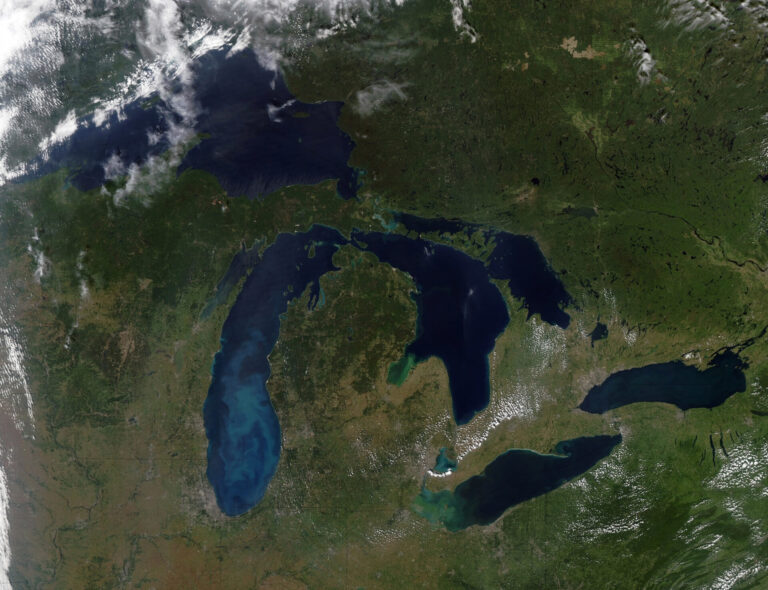The Safe Drinking Water Act, 2002 (SDWA) imposes significant obligations on municipalities for the operation of their drinking-water systems. With those obligations come risks, including the risk of substantial fines and the imposition of an array of administrative penalties. The obvious questions for municipalities are how to manage and how to mitigate, those risks. In answering those questions, municipalities may ask whether, and to what extent, the risks can be managed and mitigated effectively and efficiently if a municipality enters into an arrangement with the private sector to own or operate its municipal drinking-water system.
The SDWA distinguishes between the owner of a drinking-water system and its operating authority, which is given responsibility by the owner for the operation, management, maintenance or alteration of the system. While the SDWA is addressed principally to the operation of municipal drinking-water systems, it contemplates the possibility that municipalities may not own those systems and may devolve responsibility for the operation of the systems on to someone else.
Obligations
Section 11 of the SDWA sets out the basic requirements that every owner of a municipal drinking-water system or the operating authority must fulfill, including:
That the water provided by the system meets the requirements of the prescribed drinking-water quality standard;
That the drinking-water system is operated in accordance with the requirements of the SDWA, is maintained in a fit state of repair, and satisfies the requirements of the standards prescribed for the system or the class of systems to which the system belongs;
That the drinking-water system is operated by a person having the training or expertise for the operating functions that is required by the regulations and the licence or approval issued or granted for the system under the SDWA;
- That all sampling, testing and monitoring requirements under the SDWA that relate to the drinking-water systems are complied with;
- That personnel working on the drinking-water systems are under the supervision of persons having the prescribed qualifications; and
- That the persons who carry out functions in relation to the drinking-water systems comply with such reporting requirements as may be prescribed or that are required by the conditions in the licence or approval issued or granted for the system under the SDWA.
The SDWA also imposes the following obligations:
- Section 13 requires the owner of a municipal drinking-water system to ensure that an accredited operating authority is in charge of the system at all times;
- Section 16 requires the owner and accredited operating authority to comply with any operational plan that may exist for the system;
- Section 18 requires the accredited operating authority, or if there is no accredited operating authority, the owner of the system to report every prescribed adverse result of a drinking-water test;
- Section 33 requires the owner of a municipal drinking-water system to apply for a drinking-water works permit and a municipal drinking-water license for the system; and
- Section 12 requires the operating authority to hold a valid operator’s certificate.
The distinguishing characteristic of all of these obligations is that they impose requirements that are, in most instances, capable of precise, objective measurement. In contrast are the obligations imposed by section 19 of the SDWA, which may require the application of less precise, even subjective, standards.
Section 19 requires that the owner of the system meet the following standards of care:
That the person exercise the level of care, diligence and skill in respect of their municipal drinking-water system that a reasonably prudent person would be expected to exercise in a similar situation; and
That the person act honestly, competently and with integrity, with a view to ensuring the protection and safety of the users of the municipal drinking-water system.
The obligation to meet the standard of care is not imposed on the operating authority, but rather on the owner of the drinking-water system. If the owner is a municipality, the obligation is imposed on the persons within the municipality who oversee the accredited operating authority. Section 19 must be read in conjunction with section 14, discussed below, which provides that a municipality cannot contract out of its section 19 obligations.
Section 19 does not come into force until Jan. 1, 2013. The delay allows municipalities time to develop ways to meet the standard of care. It also provides an opportunity for municipalities to decide whether they wish to enter into private/public arrangements for the supply of drinking water.
Complying with the Section 19 obligations may be more difficult than complying with those imposed by other sections of the SDWA, because the content of the Section 19 obligations are less precise. What a “reasonably prudent” person would be expected to do is a standard that is not capable of a fixed or precise definition, and will change over time and under different conditions.
Penalties
The SDWA prescribes a number of penalties, both administrative and quasi-criminal in nature, which may be imposed for breaches of the SDWA or any of the instruments created under its authority.
Examples of administrative penalties include the suspension or revocation of an approval for a municipal drinking-water system and the imposition of administrative monetary penalties.
Quasi-criminal penalties include fines, the size of which will vary depending on whether the conviction is against an individual or a corporation. The fines can be very substantial, particularly for subsequent convictions. In the worst cases, an imprisonment for a term of not more than one year can be imposed.
Delegation
If a municipality enters into an agreement with an operator for the operation of the drinking-water system, section 14 requires the agreement to contain the following provisions:
- A description of the system for which the operating authority is responsible;
- A description of the respective responsibilities of the owner and the operating authority to ensure that the operation, maintenance, management and alteration of the system comply with the SDWA;
- A description of the respective responsibilities of the owner and the accredited operating authority in the event a deficiency is determined to exist or an emergency occurs;
- A description of the respective responsibilities of the owner and the accredited operating authority to ensure that the operational plans for the system are reviewed and revised appropriately and that both parties are informed of all revisions; and
- Any other provisions that are required by the regulations.
Subsection 14(2) permits the owner of a drinking-water system to delegate a duty imposed under the SDWA to the accredited operating authority. However, Subsection 14(3) provides that the delegation does not relieve the owner of the drinking-water system from the duty to comply with the standard of care prescribed in Section 19, or the duty to ensure that the accredited operating authority complies with its duties under the SDWA and the terms of its agreement.
Section 14 also does not come into force until Jan. 1, 2013. In the interim, and as a matter of good management practice, municipalities negotiating an agreement with a private sector operator should include the provisions required by Section 14.
Section 51 notes that if a municipality transfers the ownership of the municipal drinking-water system to a person other than the municipality, it must ensure that the agreement includes all the provisions required to ensure continuing municipal responsibility for the system. It also provides that, if a municipality transfers the ownership of a municipal drinking-water system to a third party, the drinking-water system shall be deemed to continue as a municipal drinking-water system and shall be subject to all requirements under the SDWA that relate to municipal drinking-water systems.
Implications of the SDWA for Public/Private Arrangements
The SDWA clearly contemplates municipalities entering into agreements whereby third parties will operate their drinking-water systems. It does so by distinguishing between the owners and operators of the systems. It also prescribes the minimum content of agreements between the owner and the operator.
If a municipality does enter into an agreement with the private sector, there are three minimum requirements for the agreement, arising out of the SDWA, as follows:
- It must meet the requirements of Section 14 of the SDWA;
- It must ensure that the operating authority complies with the objective obligations under the Act, those which appear in Sections 11, 13, 16, 18, 33, and 12;
- It must include mechanisms by which the municipality can meet its Section 19 standard of care obligations.
In order to meet the Section 19 standard of care obligations, municipalities should have regard to what it would have to demonstrate to meet the standard of due diligence. Examples of what that standard would require include, but are not limited to, the following:
- That the municipality is familiar not just with the regulatory standards, but also with the basic operating requirements of a drinking-water system;
- That the municipality has set the over all policy direction for the municipal drinking-water system and established the standards to which the system must operate;
- That the municipality receives regular reports from the private sector operator on the operation of the municipal drinking-water system and, in particular, on whether the system has met the defined standards;
- That the municipality has periodically audited the operation of the municipal drinking-water system, and the performance of the external operating authority, according to the appropriate metrics.
A municipality has to meet its section 19 obligations, regardless of whether it enters into an agreement with the private sector to own or operate the municipal drinking-water system. If the municipality does enter into an agreement with the private sector to own or operate the drinking-water system, the municipality must ensure that the agreement contains provisions that allow the municipality to meet the section 19 obligations. For example, the agreement would have to provide that the municipality retains the obligation to set the overall policy direction for the municipal drinking-water system. It would have to require that the private sector provide annual and periodic reports on the operation of the municipal drinking-water system. It would have to include a provision requiring periodic audits of the performance of the private sector. It would have to detail the requirements for responses to defects in the operation of the system.
The Report of the Walkerton Inquiry, from which the SDWA derives, contains a succinct summary of the nature of the obligations a municipality undertakes once an agreement with the private sector is signed. The report states that, “the orientation of the municipality shifts from direct-service delivery to ensuring contract compliance.” The report indicates that “the accountability of the municipality will be exercised as supervisor of the agreement, and the municipality will need to dedicate enough resources and personnel to fulfil this oversight role effectively.”
It is possible for a municipality to enter into an agreement with the private sector to own or operate the municipality’s drinking-water system in a way that allows the municipality to manage, and mitigate, the risks imposed on it by the SDWA. The key to doing so effectively lies in the agreement the municipality enters into with the private sector, and in the operating arrangements that flow from that agreement.









